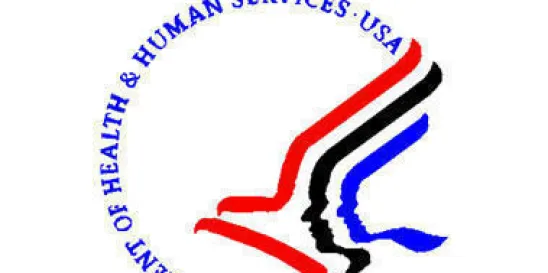Several federal laws protect the “rights of conscience” of federally funded healthcare entities and healthcare providers and prohibit recipients of federal funds from requiring individuals to participate in actions that they find objectionable on religious or moral grounds. On January 11, 2024, the US Department of Health and Human Services (HHS) published its new final rule governing federal healthcare conscience protection statutes, titled Safeguarding the Rights of Conscience as Protected by Federal Statutes (2024 final rule), codified at 45 CFR §§ 88.1 – 88.4. While making efforts to balance patients’ rights to access healthcare on the one hand with the religious beliefs and moral convictions of providers and benefits plan sponsors on the other hand, the 2024 final rule repeals the majority of the prior conscience protection regulations (2019 final rule), which three federal courts found to be unlawful, and reverts to the framework created by the Obama administration (2011 final rule). This continues a pattern of pendulum swings between Democratic and Republican presidential administrations that began about 15 years ago at the end of the George W. Bush administration.
IN DEPTH
2024 FINAL RULE OVERVIEW
The 2024 final rule sets out that any healthcare entity or individual may file a complaint with HHS’s Office for Civil Rights (OCR) alleging a potential violation of the conscience protection statutes. Notably, the complaint filer does not have to be the entity whose rights under the conscience protection statutes are allegedly being violated. OCR’s website encourages all complaints to be filed via OCR’s online portal. Any relevant complaints filed with HHS will be routed to OCR if they are not initially filed directly with OCR.
OCR’s delegated authority to facilitate and coordinate enforcement of the conscience protection statutes across HHS includes stated empowerment to take the following actions:
- Receiving and handling complaints
- Conducting investigations
- Consulting with other HHS agencies on compliance matters
- Seeking voluntary resolutions of complaints among involved parties
- Consulting and coordinating with the relevant HHS fund managers and using existing enforcement regulations, such as those that apply to grants, contracts, or other programs and services
- Initiating compliance reviews when complaints are lodged
- Coordinating remedial action as HHS deems necessary and appropriate and as allowed by law and regulation
- Coordinating with relevant HHS agencies to make enforcement referrals to the US Department of Justice (DOJ)
The final three items on the above list did not appear in the 2023 proposed rule, so their legality may be in dispute. That is additionally true because at least some of the conscience protection statutes did not include delegations of investigative and enforcement authority to HHS at all (in contrast to, for example, the explicit delegations of investigative powers that Congress included in HIPAA). But HHS noted in the 2024 final rule preamble that these activities are necessary to empower OCR’s ability to meet OCR’s obligations to handle and investigate complaints and to initiate compliance reviews. To that end, the 2024 final rule addresses (1) the conscience protection statutes that the Secretary of HHS authorizes OCR to enforce; (2) how OCR will receive, handle and investigate complaints regarding noncompliance with the conscience protection statutes; and (3) OCR’s strong encouragement, rather than requirement, to post a notice to patients that is consistent with the conscience protection statutes.
Conscience Protection Statutes
The 2024 final rule states that OCR has the authority to provide for the enforcement of the conscience protection statutes, which include the Church Amendments, the Coats-Snowe Amendment, the Weldon Amendment, certain provisions of the Affordable Care Act, certain provisions of the Medicare and Medicaid statutes, and the Consolidated Appropriations Act, among other federal laws.
These laws generally prohibit the government from discriminating against institutional and individual healthcare entities by compelling the performance of certain healthcare services or conditioning some or all federal HHS funds (potentially including, depending on the specific statute at issue, Medicare and Medicaid reimbursement and Public Health Service grants) on whether the entity performs certain healthcare services, if doing so would be contrary to an individual’s religious or moral convictions.
Complaint Handling and Investigating
When OCR receives a complaint alleging that the conscience protection statutes have been violated, the 2024 final rule requires it to promptly investigate. Per the rule, OCR’s investigations may include a review of the investigated party’s practices, policies, communications, documents, compliance history, circumstances under which the possible noncompliance occurred and other factors relevant to determining whether there is noncompliance. The rule purports to authorize OCR to use any number of fact-finding methods, including, without limitation, site visits. OCR may also seek the assistance of any state agency. (As previously noted, depending on the specific statute at issue, these purported delegations of investigative authority may be subject to challenge as never having been granted by Congress to HHS in the first place.)
The 2024 final rule states that OCR may adopt a negative inference if, absent good cause, an entity that is purportedly subject to the conscience protection statutes fails to respond to a request for information or to a data or document request within a reasonable timeframe.
If the investigation reveals a failure to comply with the conscience protection statutes in OCR’s judgment, the rule states that OCR will work with the involved parties to resolve the complaint through informal means whenever possible. “Informal means” is not defined in the 2024 final rule or clarified in the preamble, as the various conscience protection statutes address compliance enforcement through different mechanisms, making a single articulable standard impracticable. Rather, OCR states that it will investigate complaints based on the applicable statute at issue. HHS may also adopt formal enforcement processes described in the underlying regulations, such as working with sister agencies to withhold funds and referring matters to DOJ.
If an investigation reveals that no disciplinary action is warranted, then OCR will notify applicable parties that an investigation occurred without findings.
In practice, complaint handling and investigations have looked very different under different presidential administrations, given widely differing policy priorities in this area. We expect that trend to continue under the 2024 final rule.
Notice of Conscience Protection Statutes
Entities are encouraged to post a public notice of rights on their website, in personnel manuals or handbooks, in applications for employment or for benefits, in student handbooks or orientation materials, or in other prominent locations where similar public notifications are customarily posted. The public notice should provide education to providers, patients and other individuals of their rights under the conscience protection statutes. The 2019 final rule had noted that posting this notice would constitute “non-dispositive evidence of compliance.” The 2024 final rule takes a more modest approach to avoid implying that entities can substantively comply with the underlying conscience protection statutes by merely posting a notice. Instead, the 2024 final rule states that posting a notice is a best practice towards achieving compliance. HHS provides sample language that it encourages entities to tailor to their circumstances and to the conscience protection statutes applicable to their operations:
[Name of entity] complies with applicable Federal health care conscience protection statutes, including the Church Amendments, 42 U.S.C. 300a–7; the Coats-Snowe Amendment, section 245 of the Public Health Service Act, 42 U.S.C. 238n; the Weldon Amendment, e.g., Consolidated Appropriations Act, 2023, Public Law 117–328, div. H, title V General Provisions, section 507(d)(1) (Dec. 29, 2022); Sections 1303(b)(1)(A), (b)(4), and (c)(2)(A), and 1411(b)(5)(A), and 1553 of the ACA, 42 U.S.C. 18023(b)(1)(A), (b)(4), and (c)(2)(A), 18081(b)(5)(A), and 18113; certain Medicare and Medicaid provisions, 42 U.S.C. 1320a–1(h), 1320c–11, 1395i–5, 1395w–22(j)(3)(B), 1395x(e), 1395x(y)(1), 1395cc(f), 1396a(a), 1396a(w)(3), 1396u–2(b)(3)(B), 1397j–1(b), and 14406; the Helms, Biden, 1978, and 1985 Amendments, 22 U.S.C. 2151b(f), accord, e.g., Consolidated Appropriations Act, 2023, Public Law 117–328, div. K, title VII, section 7018 (Dec. 29, 2022); 22 U.S.C. 7631(d); 42 U.S.C. 280g–1(d), 290bb–36(f), 1396f, 1396s(c)(2)(B)(ii); 5106i(a)); and 29 U.S.C. 669(a)(5). More information to help entities determine which statutes are applicable to them is available at https://www.hhs.gov/conscience/conscience-protections/index.html. You may have rights as a provider, patient, or other individual under these Federal statutes, which prohibit coercion or other discrimination on the basis of conscience, whether based on religious beliefs or moral convictions, in certain circumstances. If you believe that [Name of entity] has violated any of these provisions, you may file a complaint with the U.S. Department of Health and Human Services, Office for Civil Rights, electronically through the Office for Civil Rights Complaint Portal, available at https://www.hhs.gov/ocr/complaints/index.html or by mail or phone at: U.S. Department of Health and Human Services, 200 Independence Avenue SW, Room 509F, HHH Building, Washington, DC 20201, 1-800-368-1019, 800-537-7697 (TDD) or by email at ocrmail@hhs.gov. Complaint forms and more information about Federal conscience protection laws are available at https://www.hhs.gov/conscience.
MATERIAL CHANGES FROM THE 2019 FINAL RULE
Perhaps the biggest change between the 2024 final rule and the 2019 final rule is the removal of all definitions. The 2019 final rule stated that its purpose was to “protect the rights of individuals, entities, and health care entities to refuse to perform, assist in the performance of, or undergo certain health care services or research activities to which they may object for religious, moral, ethical, or other reasons.” “Health care providers” was defined to include physicians; pharmacists; healthcare personnel; health professions students; health professions applicants; medical laboratories; biomedical and behavioral researchers; health maintenance organizations; health insurers, plans, plan sponsors and third-party administrators; and any other healthcare provider or healthcare facility. “Assist in the performance” further broadened the individuals who could claim conscience objections to providing healthcare services by including any individual who “has a specific, reasonable, and articulable connection to furthering a procedure or a part of a healthcare service program or research activity . . . includ[ing] counseling, referral, training, or otherwise making arrangements for the procedure.”
The 2019 final rule received critical comments that “assist in the performance” would allow individuals with no direct patient care responsibilities to impede patients’ abilities to otherwise receive care to which they are entitled. Multiple federal courts in 2019 and 2020 concluded that the 2019 final rule exceeded HHS’s rulemaking authority or was arbitrary and capricious in various respects, including with regard to such broad definitions. See, e.g., New York v. U.S. Dep’t of Health & Human Servs., 414 F. Supp. 3d 475, 512-15, 523-24 (S.D.N.Y. 2019); Washington v. Azar, 426 F. Supp. 3d 704, 719-20 (E.D. Wash. 2019). The 2024 final rule’s removal of all definitions may cause a different challenge in that it will be less clear how healthcare entities should address employees’ claims of conscience objection. For example, the 2024 final rule does not address whether a hospital scheduler could decline to make an appointment for an individual seeking a visit with an endocrinologist for gender confirmation-related hormone replacement therapy or whether an ambulance driver should be permitted to decline to transport a patient seeking a medically necessary, pre-scheduled abortion. OCR’s case-by-case approach to evaluating complaints and conducting investigations is not likely to afford covered entities much predictability, especially across presidential administrations.
COMPLIANCE PLANNING
Covered entities will need to monitor internal complaints regarding moral or religious objections and take care to document burdens and other explanatory circumstances where there is any arguable lack of full accommodation of workforce or patient moral or religious objections. Under the 2024 final rule, the applicable legal standard remains aligned with Title VII of the Civil Rights Act of 1964, requiring reasonable accommodation of workforce member religious and moral beliefs and practices, but not to the point of imposing an undue hardship on the employer. See 42 U.S.C. § 2000e(j); Trans World Airlines, Inc. v. Hardison, 432 U.S. 63, 84 (1977). However, as we have seen over the years, the enforcement of the conscience protection statutes varies widely from one administration to the next, and the 2024 final rule compounds this variability by giving OCR significant discretion and providing covered entities with few clear obligations.
When preparing compliance workplans in advance of the 2024 final rule effective date of March 11, 2024, entities should create flexibilities that will limit disruption to other unrelated compliance efforts. Entities also should consider the pros and cons of posting the notice of rights recommended in the 2024 final rule and whether this notice aligns with internal nondiscrimination policies and procedures.
As in many contexts, communicating proactively and transparently with workforce members on these issues, and making sure they have opportunities to have any concerns heard and questions answered, usually goes a long way in reducing the risk that any difficult situation or conflict will grow into a formal OCR complaint and investigation under the 2024 final rule.







 />i
/>i
